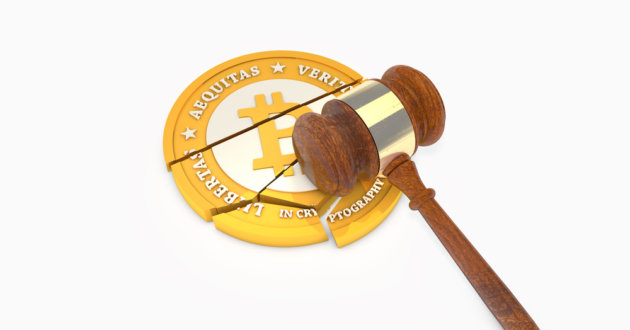The United States Remains Divided on the Bitcoin Regulation Front

It is evident there is no united front when it comes to Bitcoin regulation. This is especially true in the United States right now. Different states have different types of regulation when it comes to cryptocurrencies. New York has been a problem state for quite some time now. They are not alone in this regard, though. Idaho, Alaska, Iowa, and Utah are not too keen on this new form of money either. It will be interesting to see how all of this plays out in the next few weeks and months.
Bitcoin regulation is problematic in the United States. Considering there is no federal law to speak of, individual states can pave their own way in this regard. It is safe to say a lot of regions are concerned about the risks associated with Bitcoin and altcoins. Idaho and Alaska have even issued official warnings. People are advised not to invest in any cryptocurrency due to potential scam risks. A very strong statement, although one that is difficult to reject.
Bitcoin Regulation Remains a Difficult Topic
No one can deny there is a lot of hype and speculation in the cryptocurrency world. As a result, the number of risks increases exponentially as well. Addressing all of these potential pitfalls will not be easy whatsoever. Most people don’t even know what they get in exchange for making an investment. Educational efforts are needed before cryptocurrency can take off as a mainstream trend. Unfortunately, local regulators are more concerned about issuing warning than educating the masses.
Thankfully, no state has decided to ban Bitcoin or other cryptocurrencies. Nor would they be able to do so, as cryptocurrencies can’t be controlled or regulated. All they can do is try to impose more rules on related service providers. As the state of New York has shown us, such decisions can easily backfire as well. The introduction of BitLicense has done nothing to benefit cryptocurrency use in New York. It’s a form of regulation which destroyed rather than nourishes.
Whether or not any US state will be open-minded to Bitcoin regulation, remains to be seen. Illinois is somewhat positive in their approach. It is still too early to draw any proper conclusions on this front, though. Protecting consumers will and should always be the number one priority. However, there is a fine line between overregulation and fostering innovation. When it comes to cryptocurrencies, that line becomes all the more difficult to find. An interesting situation to keep an eye on, that much is certain.